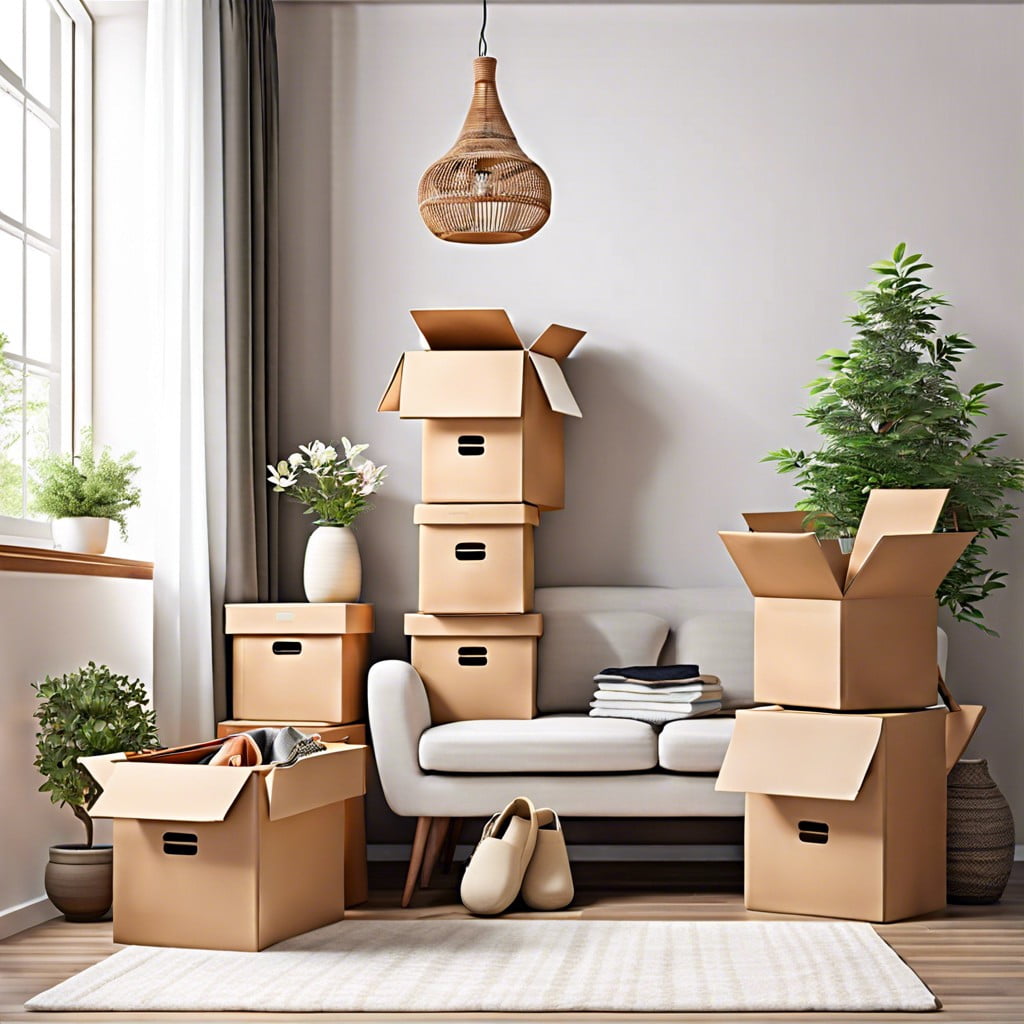Learn how to declutter your home effectively with straightforward steps that will transform your space and simplify your life.
Key takeaways:
- Visualize your ideal space and set realistic goals.
- Use the “One Year Rule” and the Four-Box Method.
- Take photos of sentimental items and apply the 20/20 rule.
- Maximize space with organizers and storage solutions.
- Tackle the kitchen by decluttering the pantry, utensil drawers, pots and pans, and dishware.
Preparation and Mindset for Decluttering

Embarking on a decluttering journey starts in the mind. First, visualize your ideal living space—what does it look like? Holding a clear image in your mind motivates and directs your efforts.
Set realistic goals: Instead of aiming to tackle the whole house in a weekend, break the work into manageable chunks. Start with one room, or even a single drawer, and expand from there.
Adopt the “one-in, one-out” rule to maintain a clutter-free environment. For every new item that enters your home, ensure an old one leaves. This helps prevent re-accumulating clutter.
Lastly, keep your spirits up! Decluttering can be tiring, but the results—more space and less chaos—are well worth the effort. Remember, it’s a marathon, not a sprint, so pace yourself and celebrate small victories.
Practical Decluttering Tips and Techniques
Start with one space at a time to prevent being overwhelmed. Tackling a single drawer or shelf can be far less daunting than an entire room. As you sort through items, use the “One Year Rule”: if you haven’t used it in the past year and it holds no sentimental value, it’s time to let it go.
Adopt the Four-Box Method to efficiently sort items: label boxes as Keep, Donate, Sell, or Trash. This visual aid helps in making decisions quicker and keeping track of your progress.
Take photographs of sentimental items you don’t need to keep. A digital keepsake doesn’t take up physical space but preserves the memory.
Apply the 20/20 rule for common items that are easily replaceable. If it costs less than $20 and can be reacquired within 20 minutes from your location, consider parting with it.
Setting a timer can make the decluttering process more manageable and fun. Challenge yourself to declutter for 15 minutes a day and you’ll be surprised how much you can achieve in these short bursts.
Organizers and Storage Solutions
Maximizing your space and keeping it orderly requires the right tools. Consider various organizers and storage solutions based on the specific needs and layouts of your home.
Drawer dividers work wonders in keeping cutlery or jewelry compartmentalized. In closets, slim velvet hangers save space while keeping clothes from slipping off. For bulkier items like blankets or out-of-season clothing, vacuum-sealed bags offer an efficient way to store things compactly.
Stackable bins and baskets are excellent for categorizing belongings in visible spaces or on shelves. Labeling these containers can save you from future frustration by making it easy to find anything quickly. Meanwhile, over-the-door organizers are lifesavers in tight spaces — perfect for shoes, accessories, or cleaning supplies.
Opt for transparent containers for items used daily to minimize time spent rummaging through opaque boxes. Remember, the key to using any organizer effectively is maintaining a system where everything has its place, turning chaotic clutter into ordered elegance.
Decluttering The Kitchen
Start with the pantry. Check expiration dates and let go of anything past its prime – your spices included! It’s surprising how much space can be reclaimed by removing outdated canned goods and seasoning packets.
Next, tackle the utensil drawers. If you have three potato peelers or a collection of barely used specialty gadgets, it’s time to choose your favorite and donate the rest. A functional drawer makes cooking much less frustrating.
For pots and pans, apply the “one in, one out” rule. This keeps your cupboards manageable, and you’ll thank yourself each time you don’t have to play Jenga to retrieve a baking sheet.
Address the fridge and freezer by discarding old leftovers and optimizing space with clear, stackable containers. This not only saves space but also makes it easier to see and use what you have, reducing waste.
Lastly, assess your dishware and glassware. Keep sets that you use regularly and consider whether you need ten different serving bowls. Simplifying to essential items creates a more spacious and inviting kitchen space.
Related Stories
- How to Declutter Your Home Fast: Simple Steps to Maximize Space
- Declutter Kitchen: Simple Steps to Maximize Space and Functionality
- How to Declutter Your Home: Simple Steps to a Cleaner Space
- How to Start Decluttering When Overwhelmed: Simple Steps to Regain Control
- Decluttering Before and After: How to Transform Your Space